Quintana to be 'much more daring' in 2017 Tour de France
Colombian aiming for victory after three podium finishes in Tour de France
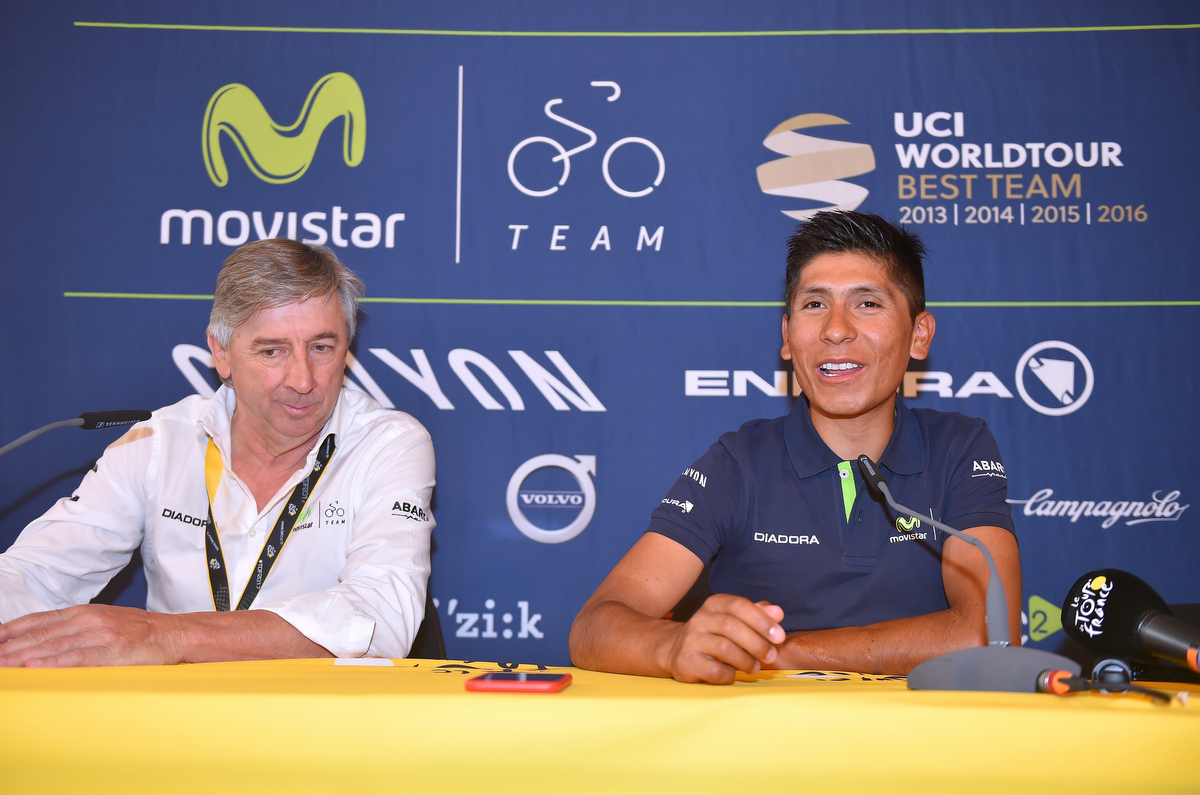
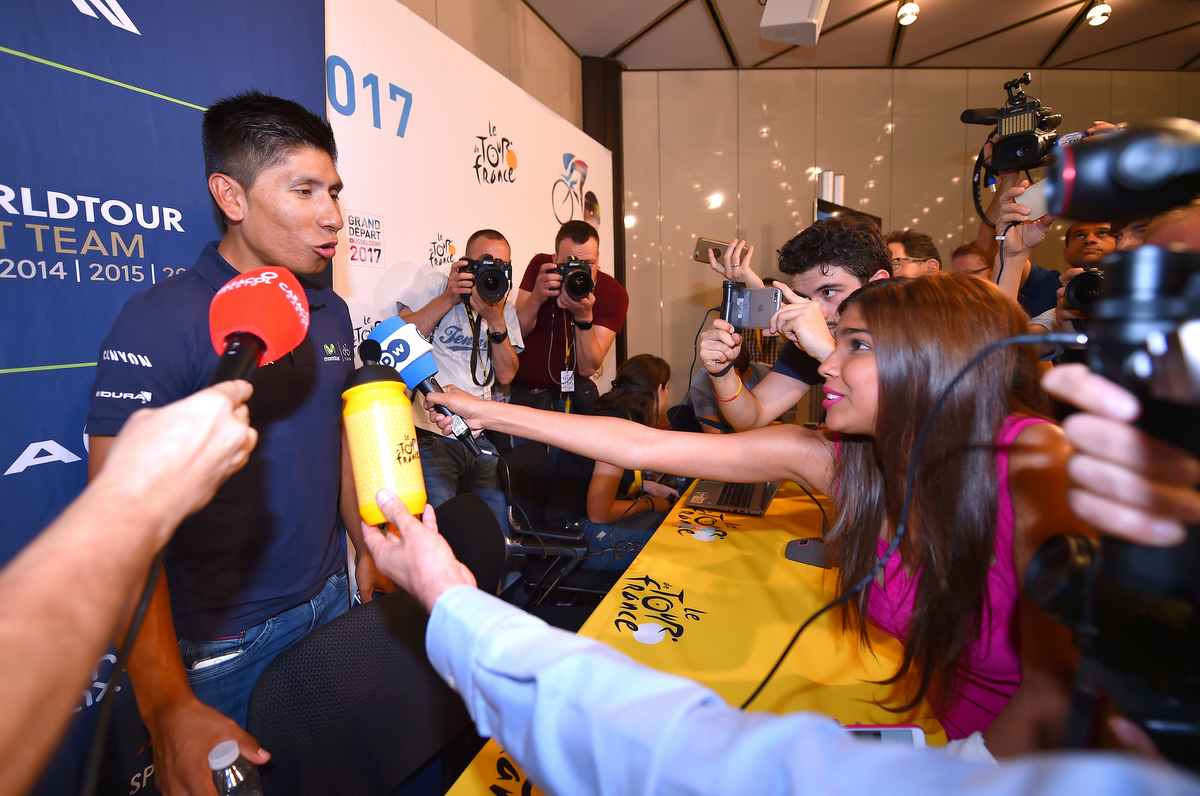
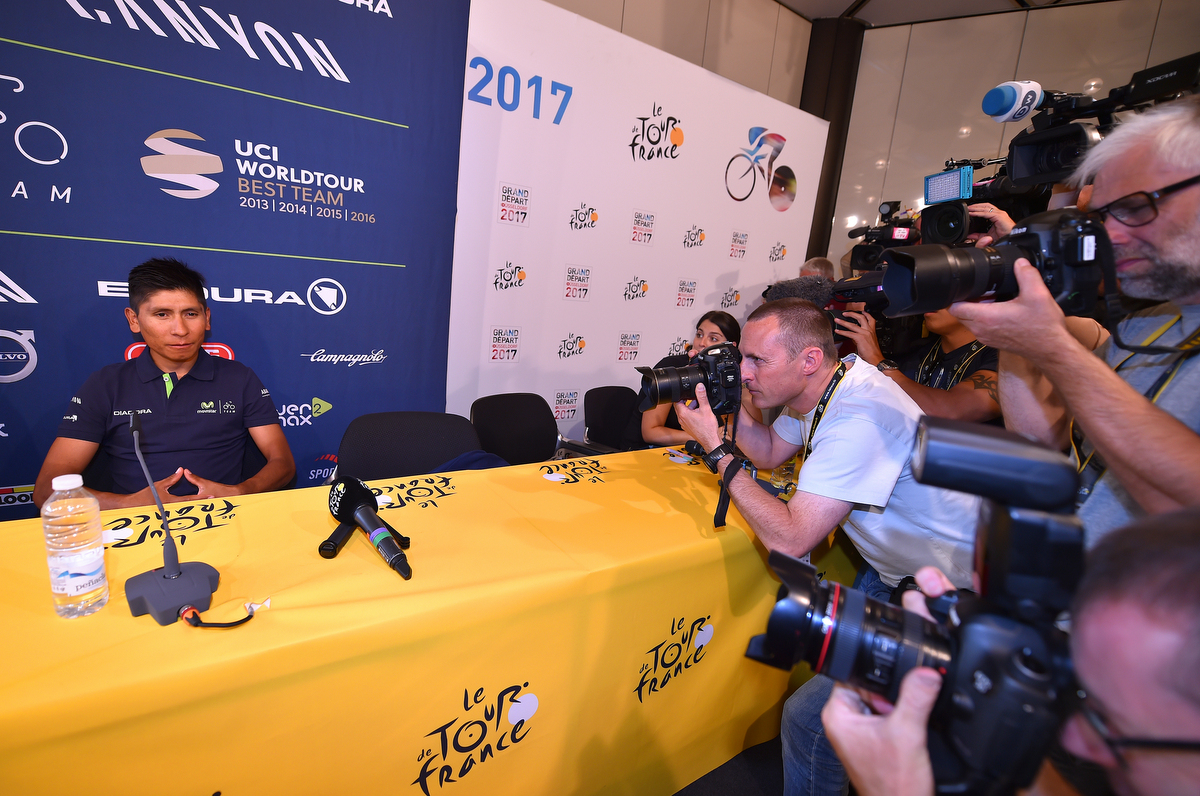
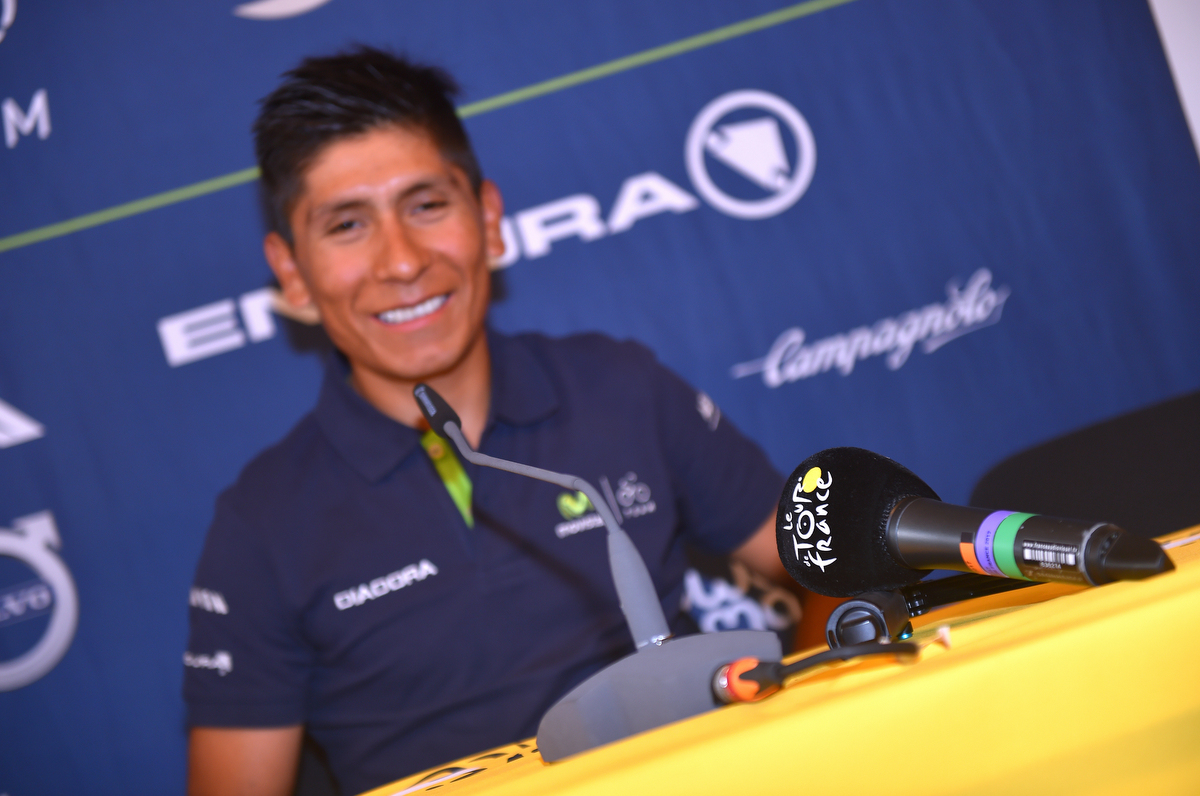
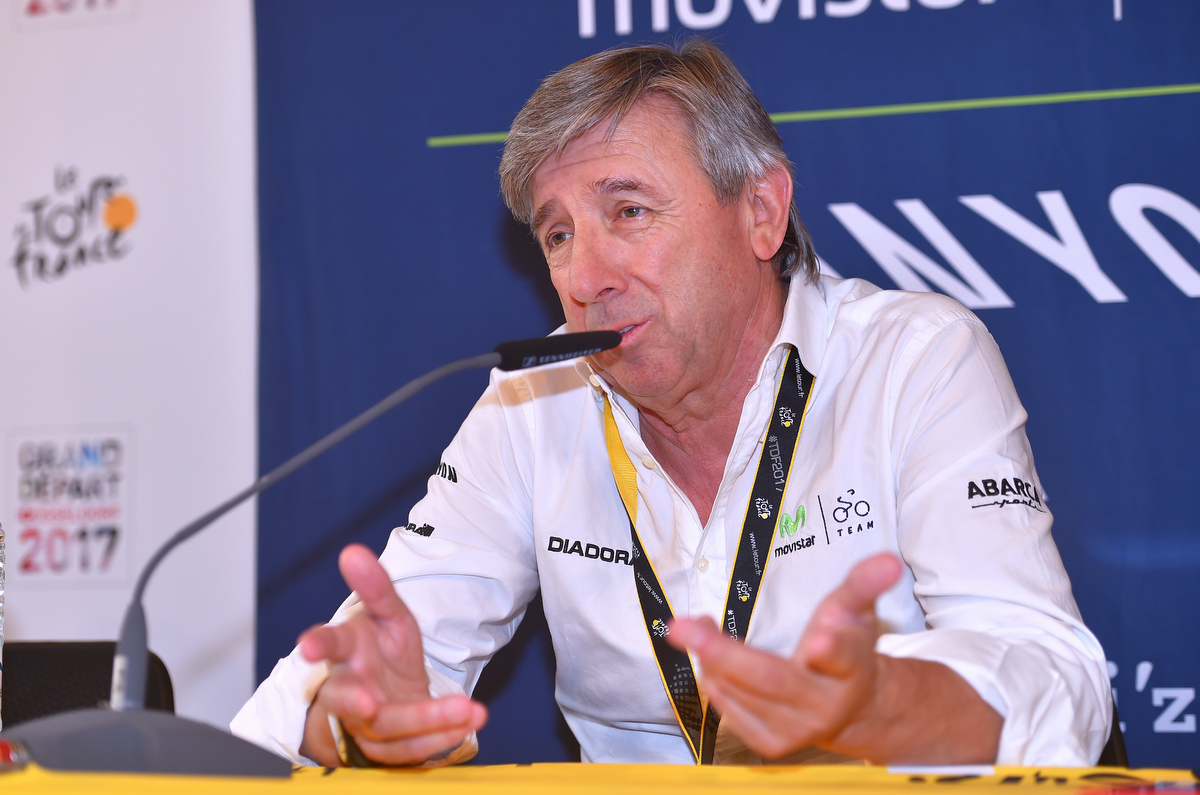
As he tackles his fourth Tour de France and second Grand Tour of the season, Nairo Quintana (Movistar Team) has recognised that if he wants to dominate this year’s route, he’ll have to be "much more daring" than usual.
For many reasons, there's widespread agreement that this could well be a more open Tour than in previous years. "This time round there is no script," Quintana's manager Eusebio Unzue pronounced during Movistar's pre-race press conference.
That unpredictability is partly thanks to the uncertainty surrounding Chris Froome's racing condition, as well as the greater number of stronger rivals opposing the three-time Tour champion. But that uncertainty has also intensified, Quintana said in the same press conference, thanks to the 2017 Tour's unpredictable route, with fewer summit finishes, less time trialling and more finishes after descents.
"It's going to be a very strange Tour," he announced. "There are some mountain stages, but fewer summit finishes, so then we will have to fight all the way through to the finish. We'll have to be much more daring."
The other big question mark for Quintana is the knock-on effect of his racing in the Giro d'Italia, and what consequences doing one Grand Tour will have on his Tour de France performance. Barring Thibaut Pinot (FDJ) and Quintana, none of the other top contenders for the Tour has also raced the Giro d'Italia, with Mikel Landa (Sky) Geraint Thomas (Sky) and Bauke Mollema (Trek-Segafredo), all GC candidates in the Giro, now racing the Tour in less high-pressure support roles.
"It's a different kind of preparation, it's clear that the Tour is the most important race of the season, but we got through the Giro d'Italia well and we're looking to see what we can do here," Quintana said afterwards.
He refused to be drawn on what the precise advantages could be, saying "we've worked in a way to get here in a different way to on previous occasions, and I'm not going to say until after the Tour what mistakes there might or might not have been. Let's get on with this race first."
Get The Leadout Newsletter
The latest race content, interviews, features, reviews and expert buying guides, direct to your inbox!
Comparing 2017 to his 2016 experience of racing two Grand Tours in one season, Quintana said "I was better in the Vuelta last year than I was in the Tour, but I can't say if I'm on the same level as the Vuelta yet. All I know is I'm feeling good."
The other big issue for Quintana is whether his allergy problems, which so seriously undermined his possibilities in last year's Tour, will return to haunt him in 2017. In 2016, his third place overall in Paris came after a performance that lacked any of the memorably aggressive moments of 2013, starting when he launched the first serious mountain attack on Froome of any of his rivals, before finishing second overall. Then in 2015 he did it all over again, only in the third week of the Tour, and almost sinking Froome on Alpe d'Huez.
"I'm always worried about the allergies that affected me last year," Quintana said. "If that happens, you're a bit screwed, but hopefully my health will be OK. If I'm feeling normal, that'll already be a win for me."
As always in Quintana press conferences, there were longwinded requests from Colombian journalists for messages to be sent to his country, one - for young Colombian cyclists - indeed so long that Quintana, half-laughing, had to request a repeat of the original question.
"I'm going to say 'hi, watch the Tour', you'll learn a lot here, and despite all the issues our country faces, fight hard and look ahead," he commented.
No Valverde
What was less normal for Quintana was that rather than face the Tour media with Alejandro Valverde by his side, on this occasion, only Eusebio Unzué was sitting at his side. This was, Unzué agreed, to emphasise that he was appearing as sole leader for the team in the 2017 Tour.
"Our aim is that Alejandro and the rest of the squad work for Nairo," Unzue argued. "Strategically it makes more sense that Alejandro helps him out, right down to when there's just a small group of favourites."
Another more unusual scenario in the 2017 Tour, Unzué said, was that "the great favourite is Froome, but it's true there are maybe some gaps in his form, probably to do with the way he's been building up for the race to get here in top condition from the start of the year."
"But it seems I think there will be less of a tyranny here in the Tour, and I'm saying that word 'tyranny' in the best sense of the word, in any case, something different to the way he [Froome] used to dominate in the Dauphiné in previous years and then go on to do that in the Tour.
"We're obviously waiting to see how Nairo will do, there's Alberto (Contador-Trek Segafredo) as well, who's one of the greats and then there's a big group of younger riders, Nairo, [Romain] Bardet (AG2R), [Louis] Meintjes (UAE Team Emirates) and lots of other names.
"But it's going to be a strange Tour, a Tour with a lot of improvisation, a Tour without a script. We used to know exactly what was coming, or that was the impression we had. This Tour will be very different to all the rest."
As for Quintana's second place in the Giro, Unzué argued that "it boosted his sense of being a Grand Tour specialist even more and what we can't do is stop believing in him. He used up a lot of energy in the Giro d'Italia, but at the same time, it's a foundation for the future. We are sure he's less tired than he was when he finished the Giro and now we'll see him perform at the most brilliant level he can."
That challenge will start at the time trial on Saturday, of course, where Quintana pulled a face when one reporter told him at the press conference close that rain was forecast for Düsseldorf this weekend. "I'm OK in the wet but I'd prefer a dry course," Quintana argued. "The more risks we can avoid the better."
On the flatter stages, Quintana will probably steer clear of potential trouble. But it's also now clear that the Colombian believes that if he wants to win the Tour, he will have stick his head above the parapet in the mountains. And probably on more than one occasion.
Alasdair Fotheringham has been reporting on cycling since 1991. He has covered every Tour de France since 1992 bar one, as well as numerous other bike races of all shapes and sizes, ranging from the Olympic Games in 2008 to the now sadly defunct Subida a Urkiola hill climb in Spain. As well as working for Cyclingnews, he has also written for The Independent, The Guardian, ProCycling, The Express and Reuters.
